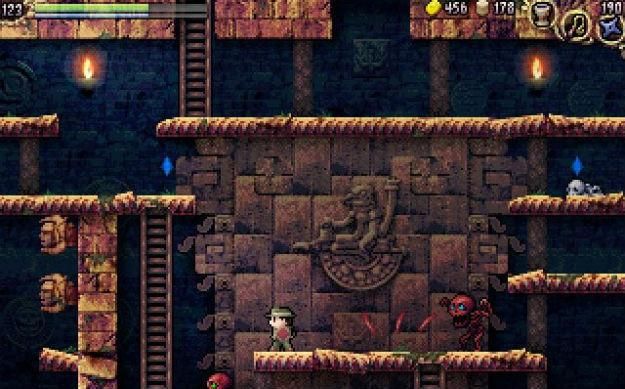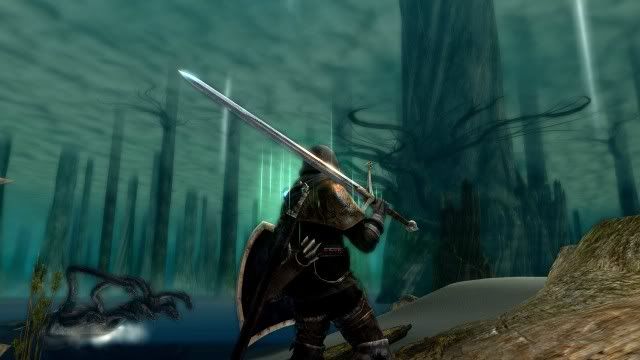This post has not been edited by the GamesBeat staff. Opinions by GamesBeat community writers do not necessarily reflect those of the staff.

Part of what makes a video game great is how it teaches the player. Even difficult games like La-Mulana and Dark Souls teach you how to overcome deadly challenges. Both are equally hard and rewarding to explore, yet Dark Souls is more punishing in death while La-Mulana retains the fun of exploring after death.
Dark Souls offers amazing areas to search. In Dark Souls, you explore the undead ruins of Lordran, where great treasure is hidden behind dangerous monsters. Some locations that you can visit are the low-level-yet-tough Undead Burg and the silent beauty of Ash Lake.
However, Dark Souls twists its rules to punish you. An autosave feature is always in effect, which prevents you from making multiple save files for a single character. Another penalty comes from valuable resources like "souls" and "humanity" being lost with each death.
Hence, Dark Souls is like a hard arcade game, demanding that you to replay at the cost of resources. You need souls to improve your character and gear. Yet each death robs you of your souls and requires you to do the annoying "corpse runs" that were never fun in Diablo II. If you die again before getting to your bloodstain, you lose your dropped souls and humanity. You will have to spend time doing boring runs, like gathering 7,000 souls in Darkroot Garden.

On the other hand, La-Mulana is more lenient with saves and death. You can have multiple save files used at different locations. So if you are stuck in the Mausoleum of Giants level, you can reload a save from the surface level. Plus, when you die, you only lose money and weights (i.e. keys) earned after your last save.
Both games are great at encouraging exploration. In Dark Souls players might find a nice sword next to a dead dragon (and then die). La-Mulana might open up new paths with a stone giant falling asleep next to a ladder when a puzzle is solved (or the stone giant falls onto you).
Unfortunately, the fun of exploration is halted in Dark Souls when a player dies. Both games start you back at a checkpoint upon death. Yet with Dark Souls players will need to get to their bloodstain if they want to get their souls and humanity back. The player has to navigate through the same monsters, traps, and locations just to reclaim what they lost.
La-Mulana keeps the flow of exploration engaging even after death. You don't lose all of your money and weights gained after a save point to a tough boss fight, and you don't have to run back to the area to reclaim what was lost. If an area is too difficult, you can explore another part of the ruins and solve different puzzles.
Video games would be boring if players are not learning anything from them. In the case of Dark Souls and La-Mulana, these are games teaching you that exploration and death can become the norm. But how to make that death engaging is where the games separate. La-Mulana keeps you exploring for new challenges after death. Dark Souls is a game that asks you for more of the their time with each death.
